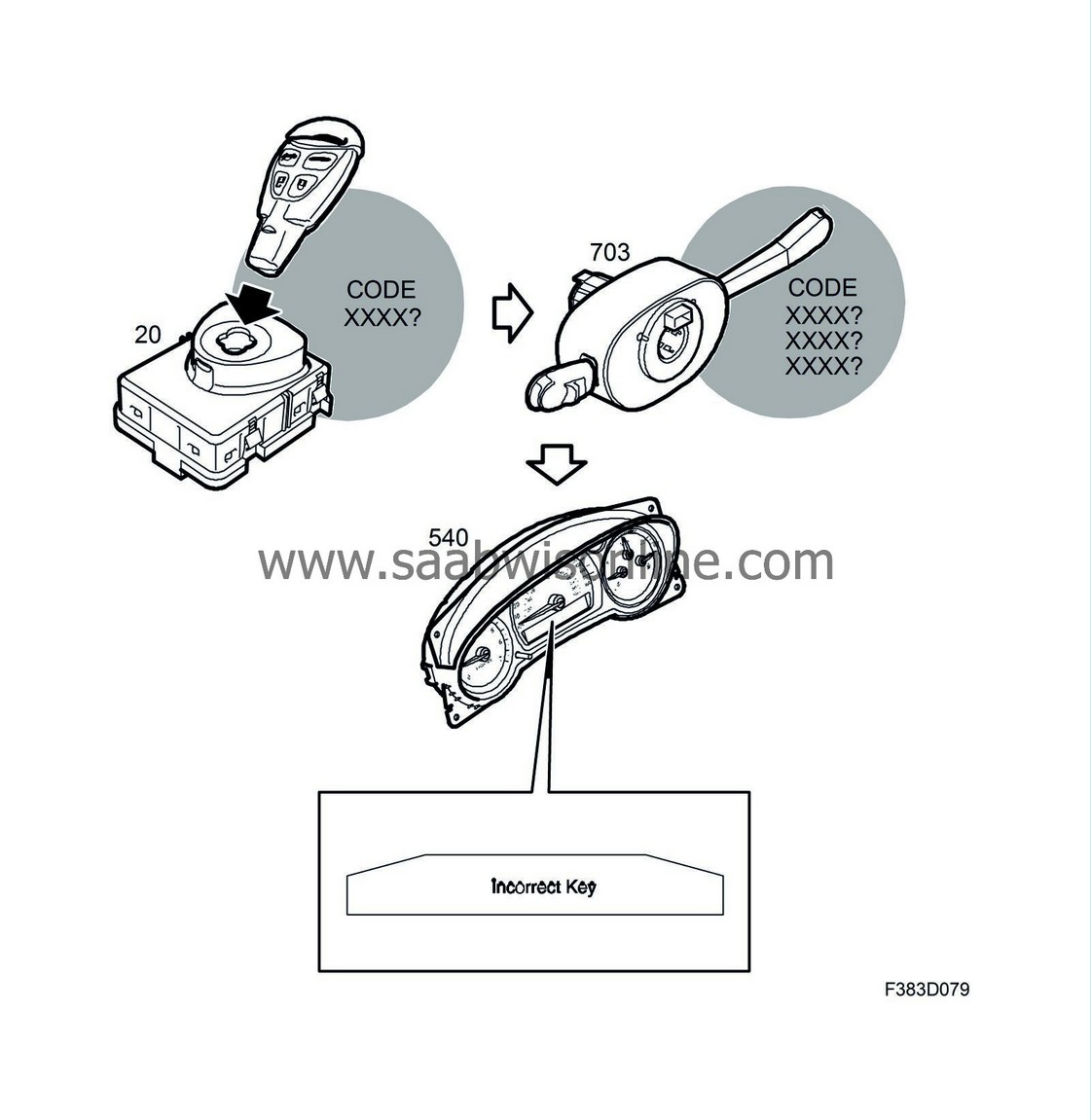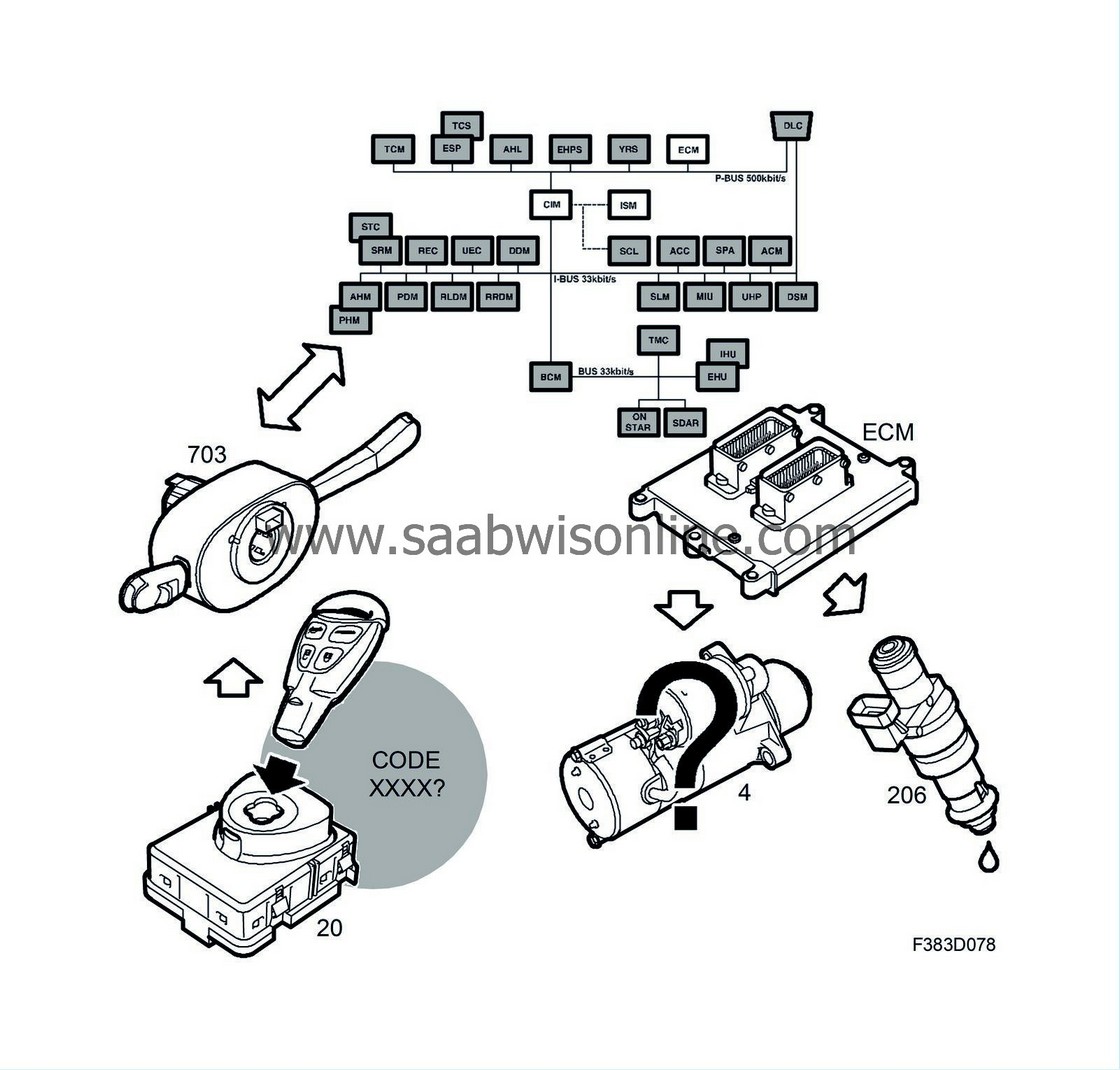Immobilisation, detailed description
| Immobilisation, detailed description |
Inserting the key closes a contact, whereby +B is energised and the ignition switch module (ISM) is activated. The column integration module (CIM) is woken up via a direct lead for +B from the ignition switch module.
The ignition switch module (ISM) reads the key transponder code and sends this on the K-line to the column integration module (CIM).
CIM checks that the code matches one of the codes stored in the memory. CIM can store max. five keys (transponder codes).
CIM also checks that the main instrument unit (MIU), BCM and passenger door module (PDM) belong to the car. These are part of the car's "immobiliser environment" and continuously transmit their ID numbers on the bus.
If the key is OK and the control module that is part of the immobiliser environment transmits the correct ID number, CIM transmits the message "Immobiliser OFF" on the bus. This information is used by the engine control module (ECM), which cancels the fuel shut-off that would otherwise be activated two seconds after the engine is started.
If it is necessary to transfer CIM, ECM or one of the control modules in the car's immobiliser environment to another car, it must first be divorced from the existing car.
Keys programmed to a CIM can be reused with a new CIM, but never with a foreign, used CIM. That is to say, you cannot program a used key to another car no matter where it is from unless you also replace CIM.
When installing a new or used CIM or ECM, the immobiliser must be reprogrammed. When fitting a new CIM, the keys must also be reprogrammed into the system. For further information, see Key code .
New control modules that are part of the car's immobiliser environment (MIU, BCM and PDM) load their ID number automatically. After loading, the control modules are locked to the car by programming them with the car's security code. The DTCs for non-programmed security code then disappear.
In the event of an immobiliser fault the CIM sends out an error message on the bus used by the MIU (main instrument unit) which shows the message in the information display.

On top of the instrument panel is an LED which is used to indicate the status of the alarm. It may be useful to know that the LED is also used to indicate a change in status for the immobiliser. If the key transponder is approved when the key is inserted in the ignition switch, the LED responds with four double flashes within a period of three seconds. The same occurs when the approved key is removed from the ignition switch and the car is immobilised. If the wrong key is used, the LED does not flash.



